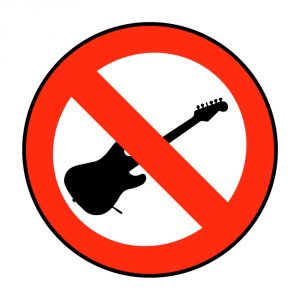Spotify agrees to block user-created Ministry of Sound playlists
 Spotify is all about streaming music, creating playlists and sharing them with others. Who doesn't relish the idea of creating the ultimate mixtape and sharing with not just their best friend, but the whole world? Music fans love it, and so do the musicians who earn royalties from making their work available.
Spotify is all about streaming music, creating playlists and sharing them with others. Who doesn't relish the idea of creating the ultimate mixtape and sharing with not just their best friend, but the whole world? Music fans love it, and so do the musicians who earn royalties from making their work available.
But Ministry of Sound felt a little differently about things. Back in September, the dance brand took Spotify to court, claiming that the music streaming service was refusing to delete playlists created by users that mimicked the tracklisting of Ministry of Sound releases.
The two companies have now managed to come to an out of court agreement, but there are very few details to go on at the moment. The reasoning behind the lawsuit is not quite what you might expect. Spotify was not allowing users to stream any music for which the relevant licenses had not been obtained: there is no question that Spotify was making payments to the appropriate record labels. What Ministry of Sound took exception to was the creation of playlists that were identical to compilation albums it released -- and streaming rights were only available to the original label.
It could be that Ministry of Sound felt irked at the fact it was not able to benefit from making its own music compilations available and therefore felt that no one else should be able to either. It could certainly be argued that Spotify could be seen to be benefiting from the Ministry of Sound brand. The argument is MoS owns the copyright for the compilation it has created regardless of whether individual tracks may be streamed legally -- the order in which tracks appear is what is subject to copyright just as much as the tracks themselves.
Neither company is being particularly vocal about the terms of any deal that has been reached, but head of licensing business affairs at Spotify, James Duffett-Smith said "Spotify and Ministry of Sound are pleased to have reached a resolution on amicable terms". A similarly unrevealing statement was made by Lohan Presencer from Ministry of Sound: "Ministry of Sound welcomes Spotify’s willingness to work together to reach an agreement".
It has been suggested that Spotify will not remove the offending playlists that have been created, and no users will be banned from using the service -- after all, there is nothing wrong with creating a custom playlist for personal use. But these playlists will not appear in search results, and other users will be prevented from following such playlists.
Image Credit: Krasowit/Shutterstock
